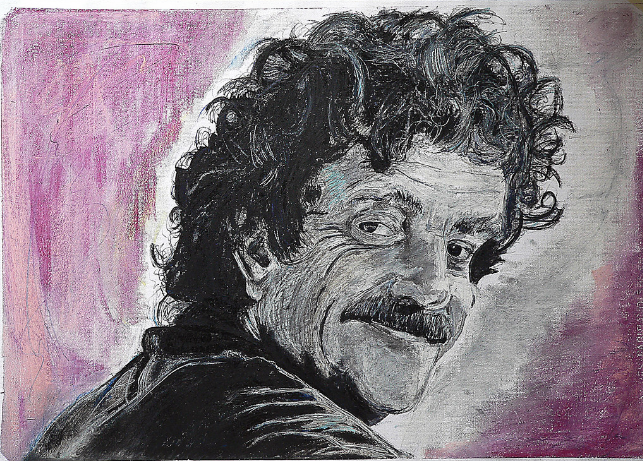|
|
| Пишет Open Culture ( @ 2017-05-25 20:00:00 |
|
|
|
|
|
|
|
|
|
|
|
|
|
|

Image by Daniele Prati, via Flickr Commons
Amidst what is now an ordinary day’s chaos and turmoil in the news, you may have noticed some outrage circulating over comments made by erstwhile brain surgeon, former presidential candidate, and current Secretary of HUD Ben Carson. Poverty, he said, is a “state of mind.” The idea fits squarely in the wheelhouse of Carson’s brand of magical thinking, as well as into what has always been a self-help tradition in the U.S. since Poor Richard’s Almanac.
Consider, for example, the immense popularity of a book written during the Great Depression, Napoleon Hill’s 1937 Think and Grow Rich, which has increased every year since its publication. By 2015, the book had sold around 100 million copies worldwide. Hill’s prolific self-help cottage industry occupies a prominent place in a distinctly American genre, and an economy unto itself. Books, videos, seminars, and megachurches promise the faithful that they need only to change themselves to change their economic outcomes, in order not only thrive but to “grow rich.”
The notion has had purchase among wealthy opponents of a welfare state, who find it a convenient way to blame the poor for circumstances outside their control. But it also, as robust sales indicate, has wide appeal among the not-so-wealthy. Why? One reason—the presciently, acerbically insightful observer of American culture, Kurt Vonnegut might argue—has to do with the fact that Americans think of poverty as a personal failing rather than a social condition, and conversely conflate wealth with intelligence and capability.
Vonnegut articulates these observations in his 1969 classic Slaughterhouse-Five, through a character named Howard W. Campbell, Jr., an American playwright who becomes a Nazi propagandist (and who stands trial in Israel in an earlier novel, Mother Night). Ostensibly quoting from a monograph of Campbell’s, Vonnegut writes, “America is the wealthiest nation on Earth, but its people are mainly poor, and poor Americans are urged to hate themselves.” Campbell’s monograph continues:
To quote the American humorist Kin Hubbard, ‘It ain’t no disgrace to be poor, but might as well be.’ It is in fact a crime for an American to be poor, even though America is a nation of poor. Every other nation has folk traditions of men who were poor but extremely wise and virtuous, and therefore more estimable than anyone with power and gold. No such tales are told by the American poor. They mock themselves and glorify their betters. The meanest eating or drinking establishment, owned by a man who is himself poor, is very likely to have a sign on its wall asking this cruel question: ‘if you’re so smart why ain’t you rich?’ There will also be an American flag no larger than a child’s hand glued to a lollipop stick and flying from the cash register.
The Kin Hubbard quoted here may now be largely forgotten, but in the first three decades of the 20th century, he was a humorist as widely admired as Mark Twain or Will Rogers. Hubbard drew a popular comic strip based on a character called Abe Martin, and his humor was once described as a “comical mixture of hoss sense and no sense at all.” The quote above comes from one of Martin’s many pithy political ruminations, which include lines like “It’s all right t’ aspire to office, but when a feller begins t’ perspire fer one it’s time t’ watch out.”
The Hubbard-quoting Campbell, writes Vonnegut with wry humor, was “said by some to have had the highest I.Q., of all the war criminals who were made to face a death by hanging.” He also pitches his appeals to the common man, and ties together the “think and grow rich” phenomenon and the tendency of so many of the country’s less-well-off to support candidates and policies that routinely endanger access to public services, quality education, and healthcare.
Americans, like human beings everywhere, believe many things that are obviously untrue. Their most destructive untruth is that it is very easy for any American to make money. They will not acknowledge how in fact hard money is to come by, and therefore, those who have no money blame and blame and blame themselves. This inward blame has been a treasure for the rich and powerful, who have had to do less for their poor, publicly and privately, than any other ruling class since, say, Napoleonic times.
Campbell appears elsewhere in the novel in an attempt to recruit American POWs into “a German military unit called ‘The Free American Corps,” of which he is “the inventor and commander.” Near the top of the post, see the character in the 1972 Slaughterhouse-Five film defend his alliance with the Nazis and explain his bizarre uniform in terms one commentator sees as distinctly resonant with today’s far-right rhetoric. For all his outlandish presentation, he is a complicated figure—something of an amalgam of the far right’s showmen and hucksters and its cynical intellectuals, who often understand very well how the stark divisions of race and class are maintained in the U.S., and exploit that knowledge for political gain.
Related Content:
Hear Kurt Vonnegut Read Slaughterhouse-Five, Cat’s Cradle & Other Novels
Josh Jones is a writer and musician based in Durham, NC. Follow him at @jdmagness
Kurt Vonnegut Ponders Why “Poor Americans Are Taught to Hate Themselves” in a Timely Passage from Slaughterhouse-Five is a post from: Open Culture. Follow us on Facebook, Twitter, and Google Plus, or get our Daily Email. And don't miss our big collections of Free Online Courses, Free Online Movies, Free eBooks, Free Audio Books, Free Foreign Language Lessons, and MOOCs.
